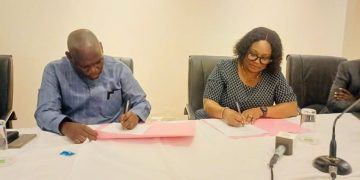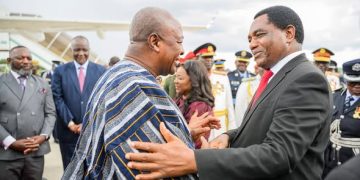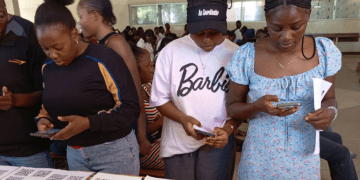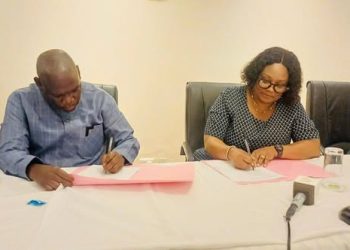By Mumbi Kalimba Kaseshya
Lusaka, June 7, 2024 — The Government of the Republic of Zambia today signed two major grant agreements with the World Bank Group, amounting to a combined total of US$ 257 million. The signing ceremony, held in Lusaka, was attended by key dignitaries including Hon. Dr. Situmbeko Musokotwane, Minister of Finance and National Planning, and Mr. Nathan Belete, World Bank Country Director for Malawi, Tanzania, Zambia, and Zimbabwe.
The agreements include a US$ 100 million grant for the National Energy Advancement and Transformation (NEAT) Programme and a US$ 157 million grant for the second phase of the Girls’ Education and Women’s Empowerment and Livelihoods Project (GEWEL-2).
ADVANCING ENERGY EFFICIENCY AND RESILIENCE
The NEAT Programme is set to enhance operational efficiency in Zambia’s energy sector by improving the financial performance of ZESCO, increasing the reliability and climate resilience of the electricity sector, and enabling private investment in non-hydro renewable energy. Key activities under this project include the implementation of measures identified in the ZESCO strategy for debt and arrears management, optimizing operational costs, and enhancing revenues. Additionally, the development of guidelines for the establishment of the Rural Electrification Fund (REF) will catalyze electrification in rural areas.
EMPOWERING WOMEN AND GIRLS
The second phase of the GEWEL project aims to promote human capital development and productivity among poor and vulnerable girls and women while strengthening adaptive social protection delivery systems. This includes providing nutrition-sensitive social cash transfers, financial assistance for educational costs to keep girls in school, and support for women’s livelihoods through training and mentorship on life and business skills.
CONTINUED SUPPORT FROM THE WORLD BANK
With these new grants, Zambia has received a total of US$ 717 million in grants from the World Bank since July 2023. Other notable projects funded include the Transport Corridors for Economic Resilience (TRACER) project with US$ 270 million, the Zambia Health Emergency Preparedness, Response, and Resilience project with US$ 50 million, and additional financing for the GEWEL project amounting to US$ 13.38 million.
In response to the ongoing drought crisis, the World Bank has also pledged US$ 200 million under the Crisis Response Window-Scaling-Up Shock Responsive Social Protection Project to help the Zambian government mitigate the negative effects of the drought.
GRATITUDE AND COMMITMENT
Dr. Musokotwane expressed profound gratitude to the World Bank for its continued support. “These grants provide much-needed relief as we work towards improving the economy and welfare of our citizens,” he stated, assuring that the government remains committed to ensuring the successful implementation of these projects.
The ceremony concluded with Dr. Musokotwane encouraging ongoing collaboration between government officials and the World Bank to continue improving the lives of the Zambian people.








































